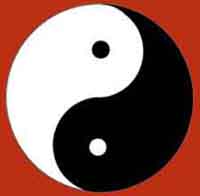
"Feng" means "wind" and "shui" means "water" (pronounced
fung-shway). In
Chinese culture gentle wind and clear water have always been
associated with
good harvest and good health, thus "good feng shui" came to mean
good
livelihood and fortune, while "bad feng shui" came to mean
hardship and
misfortune.
The concept of Feng Shui is not very different from Vaastu. The
principle behind both are the same. Chinese refer to Chi as the
cosmic breath and recognize that there is a male (positive)
force and a female (negative) force which they call ‘Yin’ and
‘Yang’. Just as Vaastu recognizes that the entire universe is
made up of five basic elements, the Chinese also recognize the
five elements.
In Vaastu, the five elements are earth, water, air, fire and
space(aakash). In Feng Shui the five elements are designated as
earth, water, fire, wood and metal. Both sciences believe that
the building should be oriented towards the north-south
direction.
Historic evidence strongly suggests that Vaastu is the
source of Feng Shui.
Feng Shui is the art of placement - a guiding philosophy to
bring harmony by
looking at our environments and how the balance of energies can
affect every
part of life. It is a complex body of knowledge that reveals how
to balance the
energies of any given space to assure the health and good
fortune for people
inhabiting it.
Feng Shui is based on the Taoist vision and understanding of
nature,
particularly on the idea that the land is alive and filled with
Chi, or energy. The
ancient Chinese believed that the land's energy could either
make or break
the kingdom, so to speak. The theories of yin and yang, as well
as the five Feng
Shui elements (Wood, Fire, Earth, Metal and Water) are some of
the basic
aspects of a Feng Shui analysis that come from Taoism.
Feng Shui concentrates on life energies and strives for a
correction of
energetic blockages, Vaastu goes much further, incorporating
many more
principles thus firmly establishing the relationship between the
house and its
inhabitants.
 - www.vedicvaastu.com
- www.vedicvaastu.com
 - www.vedicvaastu.com
- www.vedicvaastu.com